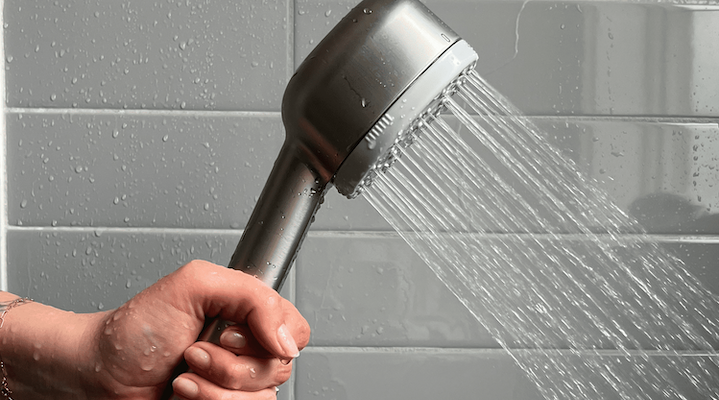Beauty device company Canopy recently announced the launch of its dermatologist-recommended showerhead in Sephora stores, marking the brand’s latest retail expansion since it first launched a direct-to-consumer site in October 2020. “The in-store launch marks a new chapter in our journey, allowing more consumers to experience the benefits of Canopy products firsthand,” said Lucas Lappe, Canopy’s co-founder. Over the past four years, Canopy has steadily expanded its retail partner
partners. They now include Amazon, The Container Store, Bluemercury, Nordstrom and Sephora. Meanwhile, Canopy’s annual revenue has increased to $40 million.
“In addition to beauty specialty retailers, we are focused on meeting the customer where they already shop for home devices. So big-box retailers are top of mind for us,” Eric Neher, Canopy’s chief marketing officer, told Inside Retail.
“Additionally, we are excited to grow our presence in retail environments where experts can recommend and sell our products such as hair salons and spas.”
Part of Canopy’s success in the market stems from rising consumer awareness of the benefits of filtering products, a global market that, according to the analysis firm Grand View Research, was estimated at $79.25 billion in 2023.
Thanks to a growing concern about health, which was largely exacerbated by the fallout of the Covid-19 pandemic, the market is expected to grow at a compound annual growth rate of 5.2 per cent from 2024 to 2030.
Beauty’s growing focus on healthcare
Canopy’s growth also reflects the rise of wellness products in the beauty industry more broadly, with players like Sephora and Ulta Beauty steadily broadening their offering of supplements, ingestibles and sexual wellness products.
The global health and wellness market was reported to be worth over $4.3 trillion in 2020 and it is predicted to increase to almost $7 trillion by 2025, according to the German research and analytics platform Statista.
“Beauty and wellness have seen a major convergence in recent years,” Neher pointed out. “Customers have so much information at their fingertips and science shows that feeling good and looking good are inextricably linked. Covid really increased this consumer focus on staying healthy and I think that’s driven a lot of interest for wellness products in general.”
The marketing executive doesn’t think that consumers’ interest in wellness products will slow down any time soon, pointing out the growing popularity of the sober-curious movement, the rise of accessible therapy, and fitness brands like Peloton and Barry’s.
“All of the major trends show that the average person will continue to become more and more tuned into their health and the well-being of their families,” he said. “As Millennials and Gen Z grow into the role of overseeing household spending, self-care and wellness will ride the wave of attention and growth.”
Canopy’s beauty-driven strategic plan
Canopy’s growing presence in beauty retail is no coincidence. From day one, the brand has marketed its products with a unique focus on both health and beauty.
For instance, its humidifier has an elevated filtering system, and design elements, like embedded sensors that monitor whether the device should be on or off; and Canopy claims it improves skin hydration and appearance.
Canopy also claims its filtered showerhead reduces harmful substances like chlorine and magnesium and clears away product buildup for a healthy scalp, which is said to encourage natural hair growth, prolong professional color treatments and prevent hair breakage.
Competitor brands like Jolie and Filterbaby also market their products heavily with the promise of improving skin and hair health.
However, Canopy stands out by collaborating with beauty brands like Kopari and By Rosie Jane.
By creating products that not only have a sleek and aesthetically pleasing design but also offer a luxury “spa-like” experience with aromatherapy scents from well-known beauty brands, Canopy has successfully positioned itself as a luxury self-care product.

